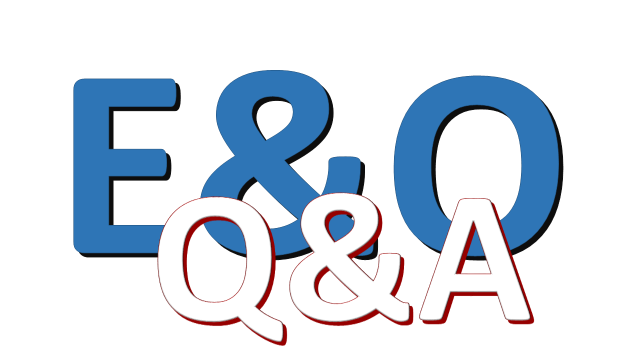
Agent’s questions about Errors and Omissions, and how E&O losses can be prevented.
By Mary LaPorte, AINS, CPCU, CIC, LIC, CPIA
Q: I am an account manager in commercial lines, and we have heard that because of COVID-19, we need to be careful checking and preparing renewals. We think we have always done a good job in the past, but can you give us an idea of some specific things we should be looking for? – Trish, Iowa
A: Trish, that is a timely question and one that a lot of agencies are asking me about. With the Coronavirus has come an expectation that policies should cover more than they originally intended. As a result, some carriers are including notices with the renewal clarifying that coverage for certain exposures not covered under the policy. An example is ISO’s clarification endorsement for Business Owners Policies: BP P 026 03 20 Coronavirus – Advisory Notice to Policy Holders. However, you should be alert to situations where a carrier may add an exclusionary endorsement, or revise language in an existing form in order to exclude coverage that was not excluded in the past.
Some states require that the insured be notified in situations when coverage has been reduced, but there are usually no requirements to notify the agent. I think you would agree that even if the insured had received a notice, they might not recognize it as anything important that they need to read, or may have read it but not understood its impact. This is where the agent can step in and make an understandable explanation, and possibly offer alternatives to secure the lost coverage.
You might think that if some coverage was reduced at renewal, that the carrier would have to stand by the previous coverage if they did not notify the customer or the agent, or if it was an error. The courts do not agree. Many courts state that once the agent has received the policy and had an opportunity to review it, the coverage stands. Unfortunately, most agents do not find out about the coverage reduction until after an uncovered claim occurs. Surplus lines forms or policies written by non-admitted carriers should especially be scrutinized.
Make sure that when checking form numbers and endorsement numbers that you also verify the edition date to see if it has changed. If you have a clear, detailed checklist, a well-trained assistant or support person can perform the policy checking, referring the checklist or any discrepancies to a more experienced CSR, Account Manager or Producer. It is then their responsibility to identify the differences between the prior term and the renewing coverage and address critical coverage issues with the insured.
Because of the recent pandemic, there may be other areas that should be addressed with your customers. Premium basis (payrolls, sales) may need to be adjusted. Some of your customers may be involved with new products or services that grew from COVID-19. Others may have out-of-state workers who were not a consideration in the past. Determine if any events have occurred which could trigger coverage under any policy. If so, the insured should consider giving notice to the carrier as soon as possible (certainly before the expiration date) to preserve their rights under the policy.
The COVID-19 pandemic is impacting agencies’ exposure to E&O. It is more important than ever to perform a diligent review with each customer at renewal.
Mary LaPorte is a consultant and educator with a strong background in Errors & Omissions loss prevention. Forward your E&O questions to marylp@lpinsuranceconsult.com.
© 2020 LaPorte Consulting, LLC. All Rights Reserved


Recent Comments